Search Results
Showing results 701 to 720 of 1017

Nutritional Challenges
Source Institutions
In this nutrition activity (page 26 of PDF), learners consider the nutritional needs of people with specific dietary requirements, such as athletes, persons with diabetes and vegetarians, and create a
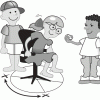
Vestibular-Ocular Reflex
Source Institutions
In this activity, learners will perform various investigations to understand the vestibular-ocular reflex and learn about the importance of visual cues in maintaining balance.

Avogadro's Bubbly Adventure
Source Institutions
In this activity on page 7 of the PDF, learners investigate the solubility of gas in water at different temperatures. This experiment will help learners determine if temperature affects solubility.
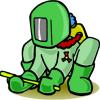
Hanford at the Half-Life Radiation Calculator
Source Institutions
This quiz lets you estimate your annual radiation exposure.
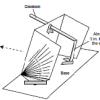
Using a Sundial
Source Institutions
In this activity (on page 12 of the PDF), learners make a sundial (shadow clock) appropriate for their geographic location in the northern hemisphere and use it to tell time.
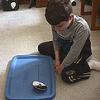
Benham's Disk
Source Institutions
In this activity, learners make a Benham Top to explore visual illusions and optics.
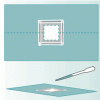
Tools of Magnification
Source Institutions
In this activity related to microbes, learners use water drops and hand lenses to begin the exploration of magnification. This activity also introduces learners to the microscope.
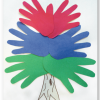
Handy Family Tree
Source Institutions
In this bilingual (English/Spanish) activity, learners create family trees by tracing the hands of their family members.
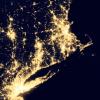
Where Do We Choose to Live and Why?
Source Institutions
In this geography investigation, learners use a nighttime satellite image to observe areas of light across the United States and to identify patterns and spatial distributions of human settlements.
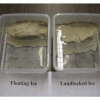
Global Climate Change and Sea Level Rise
Source Institutions
In this activity, learners practice the steps involved in a scientific investigation while learning why ice formations on land (not those on water) will cause a rise in sea level upon melting.
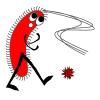
Comparing Sizes of Microorganisms
Source Institutions
In this activity related to microbes, learners create scale models of microorganisms and compare relative sizes of common bacteria, viruses, fungi and protozoa using metric measures: meters, centimete

Wintergreen
Source Institutions
In this outdoor, winter activity, learners find living green plants under the snow and determine the light and temperature conditions around the plants.
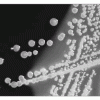
Microbes are Everywhere
Source Institutions
In this four-day activity, learners grow bacteria and/or fungi from a variety of locations and compare the results.
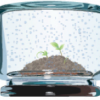
Photosynthesis and Transpiration
Source Institutions
In this activity on page 7 of the PDF (Plants—The Green Machines), learners examine the effects that light and air have on green plants.
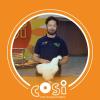
Bird Watching
Source Institutions
In this activity, learners will observe birds in their backyard or local park. They will attempt to find common Ohio birds and will look for bird behaviors just like an ornithologist.
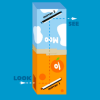
Periscope
Source Institutions
In this optics activity, learners build a spy tool to secretly view things over walls or around corners.
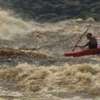
Evolution in Action: Isolation and Speciation in the Lower Congo River
Source Institutions
In this guided discussion activity, learners watch a video about Central Africa's Lower Congo River, one of the most biologically diverse rivers in the world.
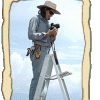
Making a Field Journal
Source Institutions
In this activity, Christina Elson, an archaeologist from the American Museum of Natural History, guides learners as they investigate an "artifact" and record their observations in a field journal.
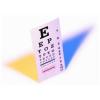
Measure Your Ability to See
Source Institutions
In this exercise (Activity #2 on page), learners test their distance vision to evaluate their overall eyesight.
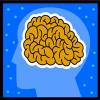
Brain Box (Bag) of Science
Source Institutions
In this neuroscience activity (5th activity on the page), learners explore their sense of touch without using their senses of vision and hearing.
